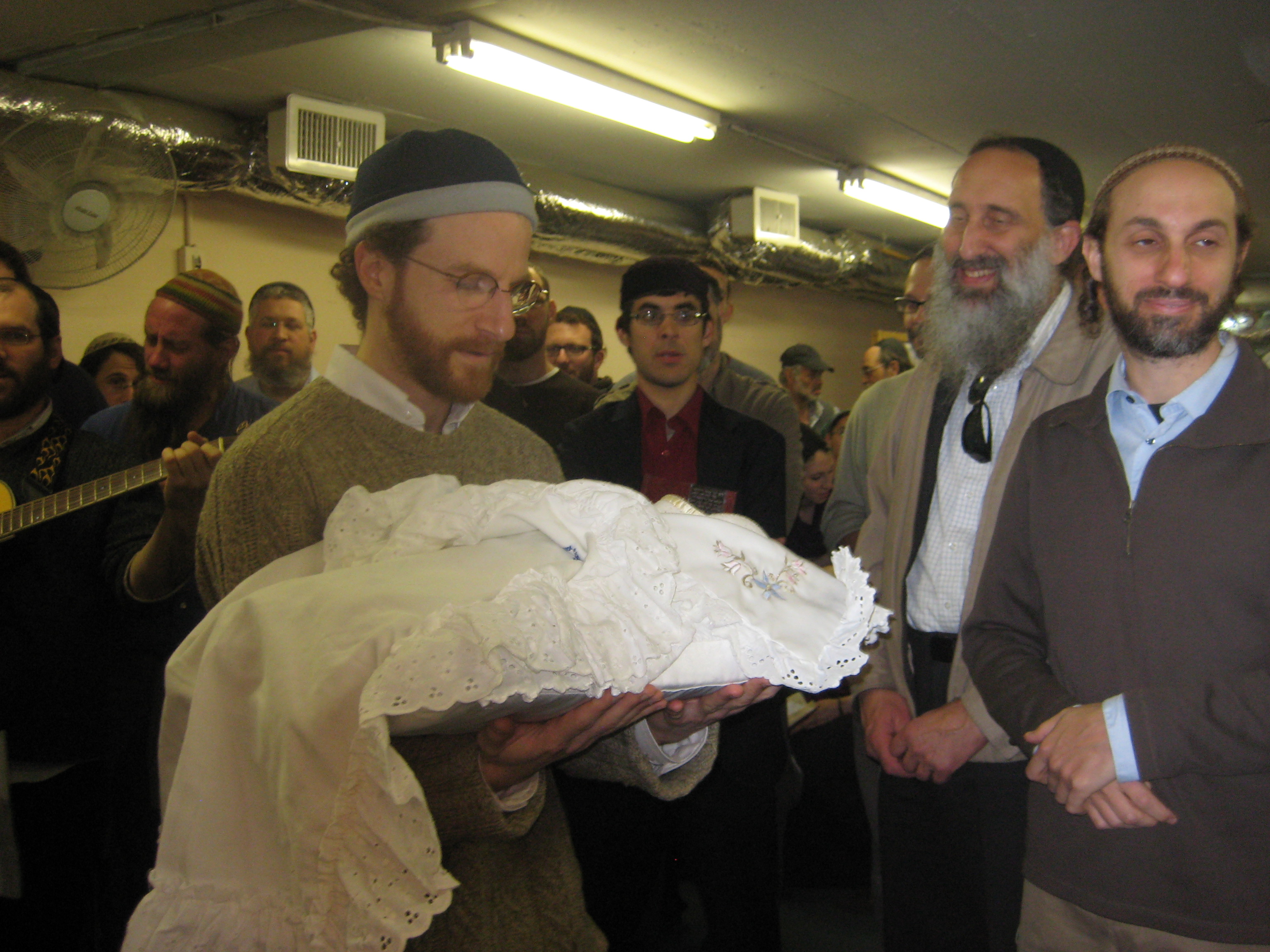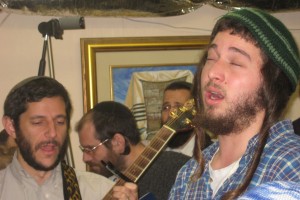EVERYONE WAS CLAPPING THEIR HANDS and singing like it was a wedding. “Wait!” I wanted to shout. “Tone it down! Think of the eight-day-old baby and his doomed foreskin.”
Jerusalem holds any number of spiritual events each day. Most don’t involve bloodletting. Maybe I am just averse to people being bled without being asked. Maybe it’s just muscle memory. The last bris I attended was my own.

